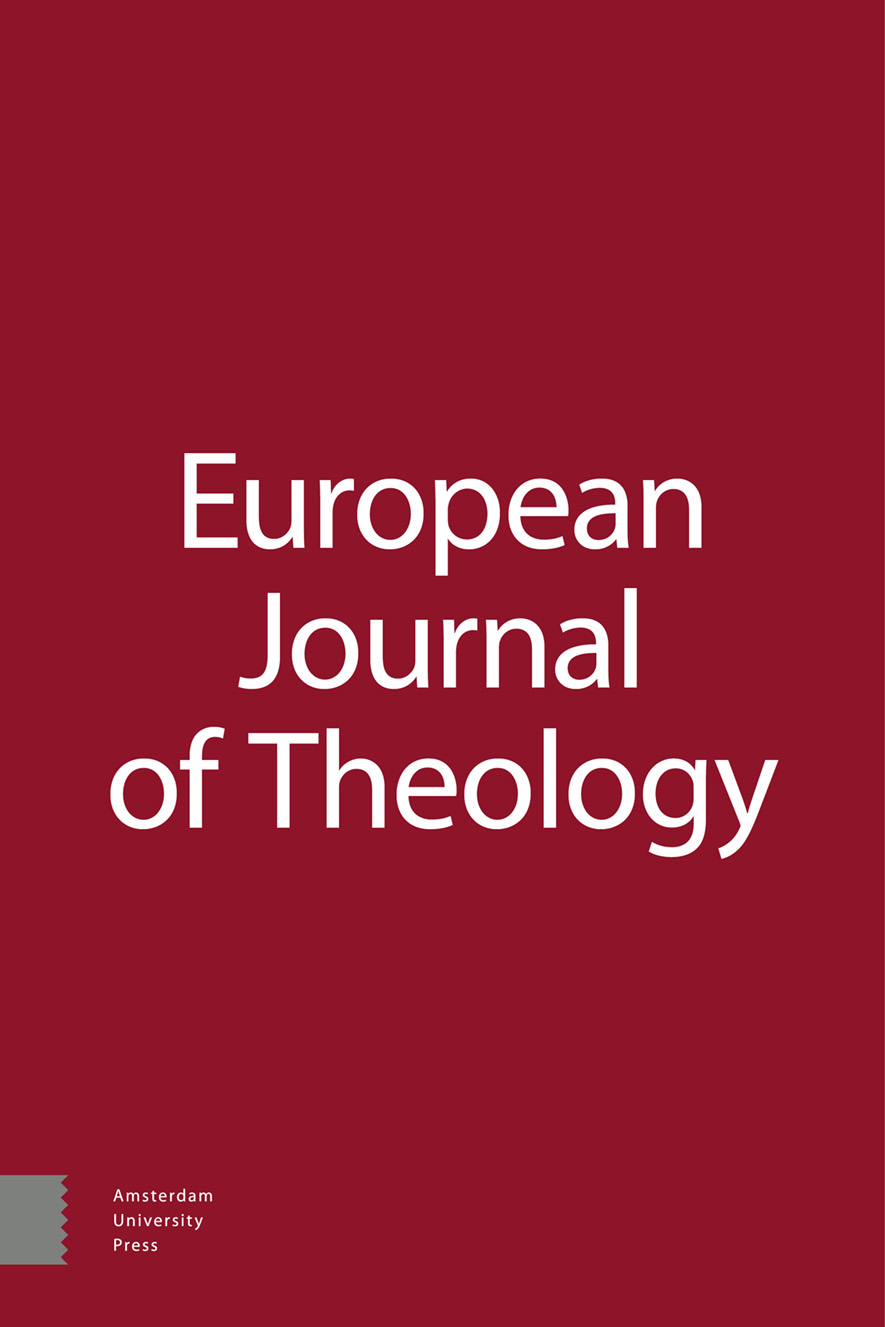-
oa The First Youth for Christ ‘Congress for World Evangelization’ and Its Impact on Missions in Europe
- Amsterdam University Press
- Source: European Journal of Theology, Volume 29, Issue 2, Sep 2020, p. 179 - 199
-
- 01 Sep 2020
Abstract
Dans cet article, l’auteur rend compte du congrès sur l’évangélisation mondiale organisé par Youth for Christ International à Béatenberg en Suisse en 1948 et il analyse son impact sur les missions en Europe. Il comble ainsi un manque, car, bien que ce congrès soit souvent présenté comme l’un des congrès missionnaires les plus influents du xxe siècle, aucune étude académique n’avait été jusque-là produite. L’auteur considère l’arrière-plan du congrès et ce qui l’a motivé : le réveil spirituel en Amérique du Nord au début des années 40 a joué un rôle à cet égard en conduisant, entre autres, à la fondation de la National Association of Evangelicals et à la formation d’organisations missionnaires telles que Youth for Christ International. Dans ces mouvements, la conscience des besoins spirituels de l’Europe s’est accrue après la fin de la guerre, souvent mêlée à une crainte que le communisme l’emporte aussi en Europe occidentale. Malgré la participation au congrès des figures de proue du mouvement évangélique d’Amérique du Nord, il n’a pas été possible d’y attirer les principaux responsables européens du monde évangélique. Dans cet article, l’auteur présente les participants au congrès, ses orateurs et son programme, et fait état de la manière dont certains participants l’ont perçu. En outre, il évalue l’impact du congrès, qui paraît plutôt indirect. Il signale notamment la présence au congrès de Bob Evans (le fondateur de la Greater Europe Mission) et de Paul Freed (le fondateur de Trans World Radio), qui y ont reçu une bonne stimulation en vue de leur ministère futur. La fondation de deux écoles bibliques allemandes peut aussi être vue comme un fruit indirect du congrès.
, SummaryThis article examines the congress on world evangelisation held by Youth for Christ International in Beatenberg (Switzerland) in 1948 and its impact on missions in Europe. It fills a gap in research so far, for although the congress is often described as one of the most influential missionary congresses of the twentieth century, a scholarly analysis was still missing. The author looks at the background of and motivation for the congress, which go back to a spiritual awakening in North America during the early 1940s and led, among other things, to the founding of the National Association of Evangelicals and the formation of mission groups like Youth for Christ International. In these groups a growing awareness of the spiritual needs in Europe emerged after the end of the war, often combined with fear of a communist takeover also in Western Europe. While the top of North American Evangelicals participated, it was not possible to get the evangelical leadership in Europe to participate in the congress. The essay introduces participants, speakers and the programme of the congress, and presents some participants’ views on the congress. Furthermore, it deals with the impact of the congress, which seems to be rather indirect. Among others, Bob Evans (the founder of the Greater Europe Mission) and Pauls Freed (the founder of Trans World Radio) participated in the Beatenberg Congress, receiving important impulses for their future ministry. The founding of two German Bible schools can also be seen as an indirect fruit of this congress.
, ZusammenfassungDer vorliegende Aufsatz untersucht den vom Missionswerk Jugend für Christus im Jahr 1948 in Beatenberg/Schweiz durchgeführten Kongress für Weltevangelisation und seine Auswirkungen auf die Mission in Europa. Er füllt damit ein Forschungsdesiderat, denn obwohl der Kongress mehrfach als einer der einflussreichsten Missionskongresse des 20. Jahrhunderts bezeichnet wurde, fehlte bisher eine wissenschaftliche Darstellung. Der Autor geht auf die Hintergründe und die Motivation für den Kongress ein, der auf einen geistlichen Aufbruch Anfang der 1940er Jahre in Nordamerika zurückgeht, der unter anderen in der Gründung der National Association of Evangelicals aber auch in Gründungen wie des Missionswerks Jugend für Christus mündete. In diesen Kreisen entstand nach Kriegsende ein wachsendes Bewusstsein für die missionarischen Herausforderungen in Europa, oftmals verbunden mit einer Furcht vor einer kommunistischen Machtübernahme auch des westlichen Europas. Während viele wichtige nordamerikanische Evangelikale an dem Kongress teilnahmen, gelang es in Europa im Großen und Ganzen nicht, die evangelikale Leiterebene für Teilnahme zu gewinnen. Der Aufsatz stellt Teilnehmer, Referenten und inhaltliche Schwerpunkte des Kongresses vor und führt aus, wie Teilnehmer die Wirkung des Kongresses beurteilten. Ferner geht er auf die Wirkungsgeschichte des Kongresses ein, die eher indirekt zu sehen ist. So nahmen unter anderen Bob Evans (Gründer von Greater Europe Mission) und Paul Freed (Gründer von Trans World Radio) an der Beatenberger Konferenz teil und erhielten dort wichtige Impulse für ihre zukünftige Arbeit. Auch die Gründung von zwei Bibelschulen in Deutschland kann als eine indirekte Frucht dieses Kongresses gesehen werden.
]

